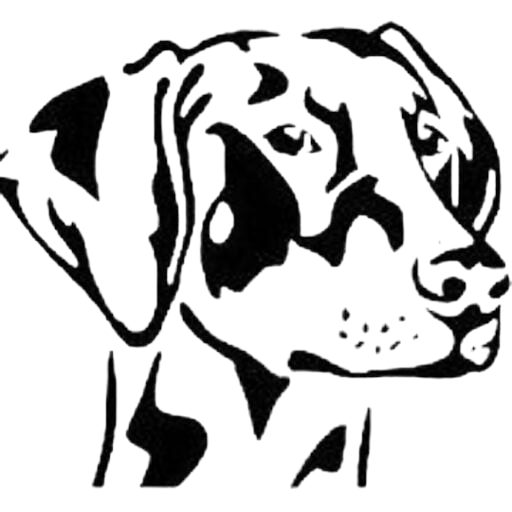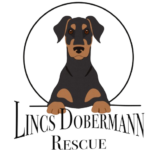Information on Adopting a dobie
Our definition of a ‘rescue dog’:
A rescue dog is a dog that is rescued from a possible euthanasia after being found as a stray, a dog that has been saved from an abusive or neglectful home or environment, or a dog the owner can no longer handle because of poor training, mental stimulation and communication and so has developed unwanted behaviours and is at risk of euthanasia or being dumped and later found as a stray.
Our definition of an adopter:
A person or family who wishes to adopt a ‘rescue dog’; who understand the dog has already been failed and are willing to invest the time, effort and money into guiding it to its best life so that it is not failed again.
Find out more about the dogs currently in our care: we share more information about the dog in our care in our Facebook group ‘Dobies at Lincs Dobermann Rescue’, than we do on our website. Check the announcements/featured section for the dog’s basic profile, then take a look in the dog’s ‘album’ where you will find more photos and some videos of the dog.
Where are the meet and greets? Most of the meet and greets will take place in Lincoln or close to where the dog is currently located.
Dobies Coming into Our Care; what to expect
- Dobies have been bred to protect people by biting; they have strong resource guarding instincts (like a Border Collie has strong herding instincts). Show line breeding has bred out a lot of the harder edges in these amazing dogs, but they are still there, still hiding in the background. If you get a working line dog, they may look different, act different and will have been bred to make these traits more prominent.
- Dobies are intelligent dogs and because of this, quickly work out how to get reinforcement from their environment and their owners, often for behaviours their owners initially find funny, cute, and endearing but over time, because they are getting constant reinforcement the behaviours escalate to a point that they are no longer funny or cute; they become unwanted behaviours.
How long will I have to wait to be matched with a dog?
- Quickest matches: no children in the home, no dog in the home unless a neutered bitch, willingness to take and work with a dog with some known unwanted behaviours.
- Slowest matches: children in the home or to be taken into consideration (especially young children), unneutered dogs in the home, adopters who want a bitch rather than a male (only about 20% of the dogs we receive into our care are bitches and we have a long waiting list for them).
- Least likely matches: dog must be cat friendly, adopters who want a well-balanced dog in every aspect (e.g. lived with and is calm around children, calm (good) on and off lead with other dogs, a dog that can be walked in an area that is used by a lot of dog walkers and can go anywhere with you, travels well, can be left home alone without barking or being destructive).
There are occasions when we rehome dogs because of owners’ ill health or because of an unexpected significant change in the owners’ circumstances. These dogs are often older dogs and whilst they may have less unwanted behavioural issues than ‘rescue dogs’ it is not a ‘given’. A dog that simply needs to be rehomed does not necessarily mean it will just slot into your lifestyle. Often dogs find new environments unsettling; boundaries, expectations and routines are different from home to home, activity levels inside and outside of the home might be different, communication might differ and the level of interaction, training and mental stimulation might be different.
Get a trainer: we highly recommend you engage a trainer prior to applying to adopt a rescue or rehome dog. All too often we get a call from an adopter because they were not prepared and are struggling with the dog
- if you have a trainer on board, you can ask them to help you interpret the information we provide together with the videos we often make available of the dog. They can help you decide if it’s the right dog for you.
- you can invite the trainer to the meet and greet; we appreciate that this is not always possible, but we will try to accommodate this where we can.
- if the trainer can’t make it to the meet and greet maybe they can visit you in the home within the first week.
- a trainer involved from the beginning of the process can help you with a settling in plan, a relationship reset, set up a training plan and help you with training techniques.

